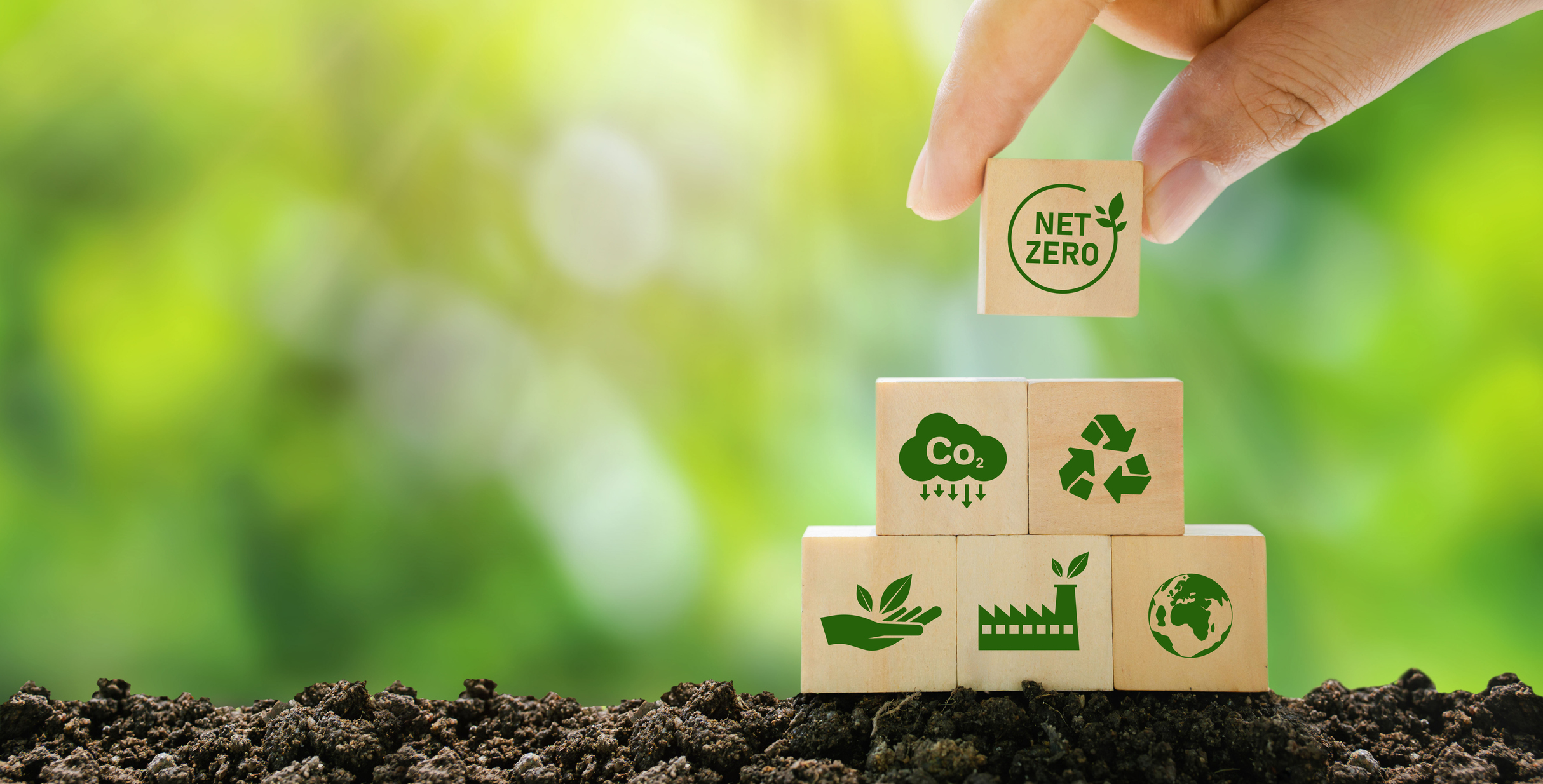Over the past few years, sustainability has shifted from a mere trend to something that’s vitally important to businesses. Not only does it help protect and preserve the planet, but sustainability offers multiple benefits to a business’ bottom line, including reducing your energy costs, attracting and retaining talent, and connecting with your customers. We spoke with Cisco’s Colin Seward, a 20-year expert in IT and its intersection with sustainability, about how you can integrate sustainability into your small business.
Kimberly Truhler: Hi everyone, I’m Kimberly Truhler, Integrated Marketing Manager for Meraki Go, and I’m so excited to have a conversation today about sustainability with expert Colin Seward.
Colin has been a leader in it at Cisco for more than 20 years. During that time, he’s been a Service Owner of multiple IT functions, including Network Services, Collaboration, and Application Development. During the past year, Colin has developed a framework for sustainability and has recently been named the Chief Sustainability Office Technology Lead at Cisco. Welcome Colin!
Colin Seward: Hi! Pleasure to meet you and get the chance to talk to the Meraki Go audience.
KT: Congratulations on the new title. I feel so honored to have you!
CS: It’s been a really exciting few weeks. Having been In IT inside of Cisco, as you say, for over 20 years, moving into a new organization, there’s a lot of new jargon, a lot of new people to to meet, and it’s a topic that’s top of mind for so many people at the moment. So I’m excited to continue to learn and see how I can help to make an impact.
KT: So before we even get into it, where did your passion for sustainability begin?
CS: I guess the thing that drew me to Cisco 20 odd years ago was Cisco was a pioneer in the internet and, at the time, the mobile Internet was just starting up. I was really interested to try to see if I could join a company that was going to be a pioneer of the mobile Internet. So I joined Cisco and got involved in rolling out the first mobile devices with mobile email and mobile applications inside of Cisco.
I always like getting involved in new things and breaking new ground. So from there, I got involved in Collaboration that was just coming through. And then got involved in Network Services and, as you say, running the network globally inside of Cisco where there was DNA (digital network architecture).
And then for sustainability, I started hearing a lot about it over a year ago. It’s not like it’s a new topic, but you could sense that this change in focus within IT. We’ve talked about greener data centers for years. One of my colleagues in Cisco IT [Douglas Alger] actually wrote a book Grow a Greener Data Center back in 2009. so the concept has been there for a long time.
You could feel that the way people were looking at it, and the things they were worried about, were changing. So I started thinking about “Well, what else can we do inside of Cisco IT? And how can we align to this bigger mission?”
So it was another new area, a lot of things to learn and, as you said, I came up with a framework, which we could explore a little bit as we talk today.
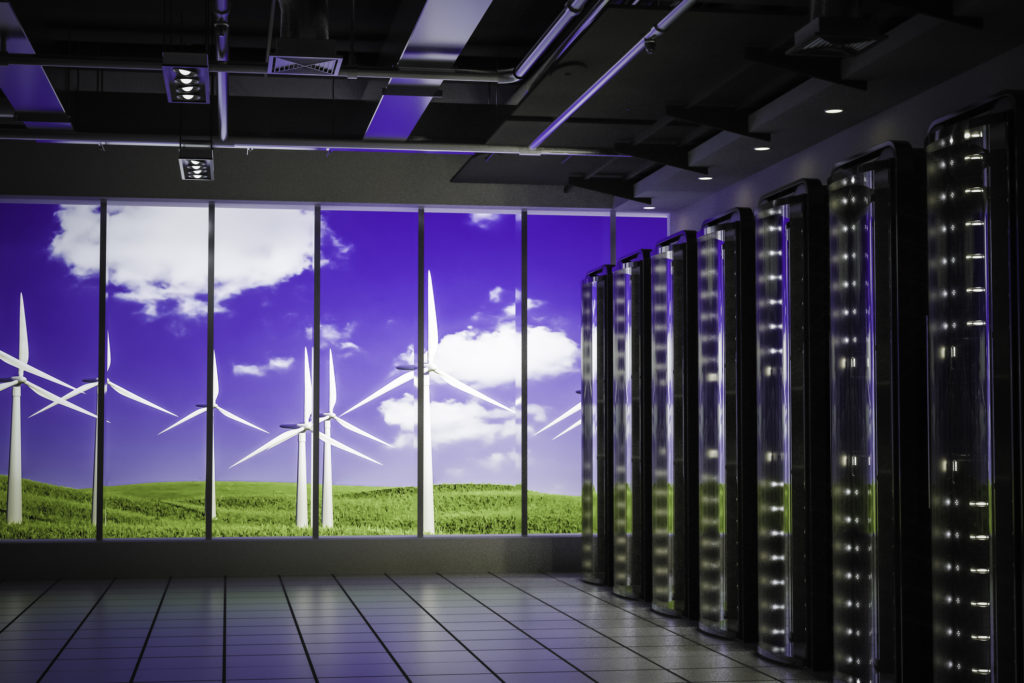
What is sustainability?
KT: It’s so true that sustainability once upon a time, from the marketing side, it almost seemed like a trendy thing to jump into. I don’t think that all businesses necessarily took it seriously. And if they did, it was almost to be opportunistic rather than this is what we should be doing, it’s vitally important to our business, and there are actually benefits involved, which we will get to later in our conversation.
So I completely agree that we seem to, over the past year and a half, almost hit this tipping point where now everyone takes it very seriously. And there’s sort of this scramble to figure out how to be more sustainable.
So before we get into more – for anyone who doesn’t know or to just get us on the same page – how would you define sustainability?
CS: I think sustainability is a pretty broad topic. It’s how you can meet the needs of the present without compromising the needs of the future generation.
I think some of the things that really are grabbing the headlines at the moment are largely around climate change, resource depletion, and the consequences of those things. These are seen as urgent problems.
So if you take climate change to start with, I think most people now accept that the scientific evidence is overwhelming. And the IPCC – or Intergovernmental Panel for Climate Change [the United Nations body for assessing the science related to climate change] – say if we don’t limit global temperatures to less than 1.5° C [34.7° F], then we could face some pretty dramatic consequences. This includes more natural disasters like floods, more severe weather events, longer and more severe droughts, and food shortages because of the changing climate.
We now say things like “It’s been a really hot summer” and we’re seeing those extreme events on a more frequent basis. So there’s this talk about this need to transition to net zero. The United Nations say that transitioning to a net zero world is going to be one of the greatest challenges that humankind has faced and, I think, within IT.
So going back to what attracted me to sustainability, this feeling as an IT professional that somehow IT should be able to help with this. And as an IT professional, we want to do our part. We know that it’s not something which is limited to one particular country. Things like climate change don’t respect those country borders. It is a global problem.
And then on top of that, as I mentioned, resource depletion. I think we’ve been talking about circularity [when materials are cycled back into the global economy after the end of their useful life] and circular economy for many, many years. But we still live in a very linear world. The Circularity Gap Report just came out in January this year and I was surprised to see that globally it said we’ve gone backwards.
Back in 2020, it said that the world was only 8.6% circular. And this year, in the latest report, it’s gone back to 7.2%. It wasn’t like it was good to start with – 8.6% was really low in terms of circularity globally – and now we’re back to 7.2%. So we’ve got a long way to go to get more circular and to avoid that resource depletion.
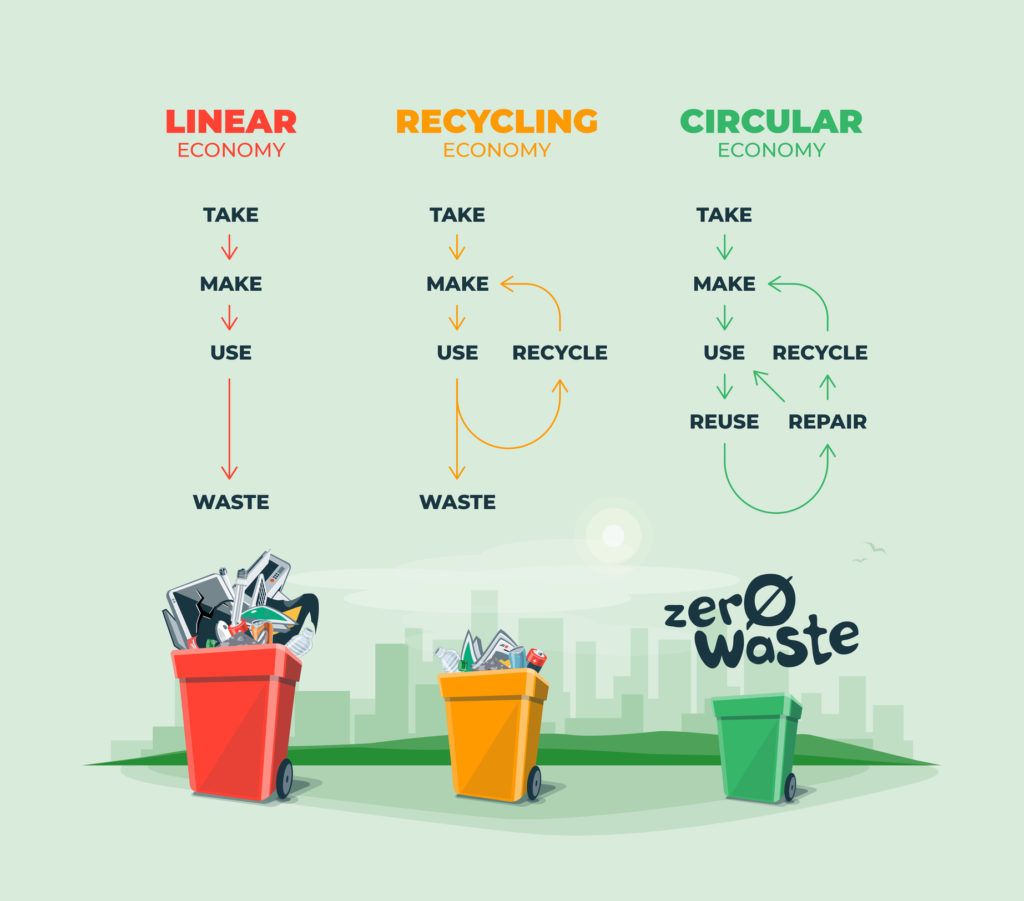
How can businesses be more sustainable?
KT: I live in California and we’ve gotten hit with drought. And then we just got nailed with weeks and weeks and weeks of rain, which the soil could not absorb. Our fire season – which used to be maybe like September, October, November – now it just feels year-round. And of course California is not alone. The rest of the world, as you’re saying, is enduring some sort of extreme climate or water shortages.
So, in a way, what I like about sustainability is – and I feel like we’re trying to play catch up to try to control this problem – what sustainability does do is put us in the driver’s seat. There are a lot of things that we can control as individuals. And of course our conversation today is focused on small businesses and Meraki Go customers are generally the smallest of the small businesses.
So overall, what are the areas that businesses can look at from an operational standpoint that can make them more sustainable?
CS: Yeah, I think you’re right. I mean, it’s sort of galvanizing everyone together because everyone has a part to play in this. And there are some really basic things that don’t cost anything which people can do. I think you’ve alluded to some of these in one of your blogs [“5 Ways to Make Your Business More Sustainable”]. I mean, just switching off equipment. If you don’t need to use it at that particular time, whether it’s lights or monitors or laptops, switching off to save power.
And then you can look at the energy supplier that you use. Are you using an energy supplier that uses renewable energy sources? You might find that the heating and air conditioning use a lot of energy; there might be grants to help you upgrade those, or you could insulate against drafts and things like that.
You can move away from single use paper and plastic, and encourage employees to bring their own mugs and water bottles in.
Or maybe encourage employees to walk to work. Or offer remote work so they don’t have to do the commute. I think there are a lot of simple things that people can do that don’t cost very much.
And then when you get to IT, I think there are still things people can do, even if they’re not incredibly IT literate. Just start to ask some simple questions. First, do they actually need to do the project in the first place? I mean, the thing that saves the most resources is a project that doesn’t ever happen. And if they do, do they need to have the latest most high spec machine? At Cisco, we offer a lot of re-manufactured equipment. Sometimes it might be when something is re-manufactured it is cheaper and it gives it a second life [which contributes to circularity].
Or you can ask questions of the supplier about the product you’re going to buy and how they designed it. Did they design it and use recycled materials? How was it assembled – was it glued together so it’s hard to disassemble to reuse it afterwards, or was it screwed together? Does it have energy saving modes that will help you with switching off the power at different times? Can it be upgraded easily so if your requirements change over the life, you can just unplug a module and plug in something for higher power. How do they package it and how do they ship it? And then, of course, what you can do when you are finished with it – do they accept product back again? Will they help you to get it reused at the end of its life?
Cisco has a goal that 50% of the plastic in products will be made of recycled content by 2025
Colin Seward
So there are a lot of simple questions you can ask suppliers like Cisco about the way we design our products. And we have goals around that internally which we share with our customers. We have goals around recycling that we’ve actually just updated in the past 2 weeks. We have a goal now that by 2025 50% of the plastic use in our products will be made of recycled content. And that includes the majority of Meraki products. We made a lot of progress on that last year in thinking about not just the product itself, but also the packaging of the Meraki products.
So there are a lot of things like that which you could look at when you’re buying from somebody and just ask the supplier questions to see is this a supplier who values sustainability if that’s one of the things your business is trying to get more focused around.
KT: In my opinion, too, in particular to Meraki Go, when you’re talking about things like paper reduction – shifting to the cloud with billing, with communication, with collaboration, so there’s not so much paper moving around the office. That’s a legitimate way to be more sustainable.
And you mentioned hybrid work as well. I’m happy to say that the Meraki Go Router Firewall Plus now has client and site-to-site VPN, so even small businesses that want to have that additional security and want to be able to let employees VPN in for that collaboration that also can help with sustainability. And you mentioned commutes – that’s a great benefit in multiple ways by not having that additional transportation.
CS: Absolutely, yes. Saves time and energy.
KT: Yes. I was looking through Cisco’s 2022 Purpose Report and one of the areas that it touched upon was Power over Ethernet (PoE) and I’m curious about how that connects with sustainability. How does that help?
CS: I’ve touched on some of the design principles we have for our products, and companies can think about their own design principles for their IT. One of the things some companies get interested in is about Power over Ethernet because it allows you to control more devices at the edge. So if you plug in a lot of things over Power over Ethernet – whether it’s lights or security cameras or access points or other things – you can monitor those remotely. You can switch them off remotely to save power. And you can use those for providing sensors for the edge.
So, for example, there’s a lot of waste in some companies through water leaks. You can get a sensor which would detect water leaks and you can plug that into Power over Ethernet. You can monitor that remotely and, if you see a problem, you can take quick action.
And the great thing – going back to the remote work example – it enables people to control a lot of that stuff remotely. They can see it from the cloud and, if they see an issue, they don’t have to jump in the car and drive out there. They can go into the dashboard and they can take some immediate course of action.
KT: That’s one thing we’ve heard from our business owners. With Meraki Go, because it’s an app and you can access it on the web as well, they’re able to do a lot of the troubleshooting remotely. If they have multiple locations and they’re trying to identify where their problem stemmed from…I mean, that’s a lot of time, that’s a lot of gas. So whether it’s Power over Ethernet or the way that our Meraki Go system is set up, all of that ties into sustainability.
CS: That’s right.

What are the benefits of sustainability?
KT: So let’s talk about the value of sustainability because sometimes I think businesses believe weaving sustainability into their operations is altruism. But there really are some bottom line benefits to being sustainable. So can you touch upon a few of those?
CS: Yes. I mean, we’ve talked quite a bit about saving energy and obviously, if you use less energy, you’re going to have lower costs. So that’s a very direct one that has a bottom line impact.
But then also a lot of employees – they actually care, they really care about sustainability. So it’s a really good way to attract and retain talent. You know, people really want to work for companies where their beliefs are aligned to the company beliefs. I think it was a Boston Consulting Group survey that said 52% of respondents said they wouldn’t work for a company that didn’t match their beliefs in environmental responsibility. It’s a very real thing if you believe the survey data that’s coming back. So I think sustainability is a great way of lowering costs, attracting and retaining talent, and it’s also good for businesses as well.
52% of employees wouldn’t work for a company that didn’t match their beliefs in environmental responsibility
Boston Consulting Group report
So customers are concerned increasingly about sustainability, and they want to buy and work with companies where it’s important to them as well, where they have a focus on being more environmentally-friendly. And in some cases, customers may be prepared to pay more to do business with a company that’s sustainable. It helps for you to have a brand around that so you have differentiation in the market. And a lot of small and medium businesses are doing business with large companies, and there is a huge focus in so many large companies now around sustainability.
If a small business has some innovative ideas about being more sustainable, they might be able to increase business with some of the large companies. And the large companies might be in turn asking the small business about what they are doing. Because a lot of companies now are asking all of their suppliers and trying to work with their supply chain so that it’s not just a single effort. It becomes everybody working together.
What is a framework for green IT?
KT: Absolutely. You know one of our values at Meraki is “Everybody In.” And it’s increasingly like if you’re not part of the solution, you’re part of the problem. And I don’t think that’s overstating it in this case. I’ve done an article on green web hosting. Can you discuss a little bit about that?
CS: Yes, I think it goes back to coming up with some design principles. If you have IT equipment and services, it’s good for you to work out what your principles are, including whether you’re using green web hosting or we touched upon PoE already. So I think there are a number of things which you can think about. “These are going to be core things that we’re going to try to do in our organization in order to be more sustainable.”
Going back to the work I did for Cisco IT – I came up with this framework, and it was a fairly simple framework, which can apply to small companies or large companies. It really looked like a sandwich, if you like. At the top level, it was understanding what your company goals were, the market you were in, and any objectives you had for the company overall.
And then it got into looking at IT and just thinking through the IT life cycle. So when you were designing things – what were the principles you were designing by? The things we sort of touched on already, like will you always tend to use the cloud, or PoE, or things like that. So there are some design principles you want to have.
And then again things we’ve touched on already – when you’re buying things, thinking about responsible procurement. Asking the questions to suppliers to understand the way they design the product. Do they use recycled materials? Do they use good [eco-friendly] packaging?
And then getting into operations. So how can you optimize your operations? Can you do things remotely? Do you always have to travel and install things, or can you just do a remote installation? And then at the end getting to asset recovery. So when you finish with something, will the supplier take it back?
So the IT framework sort of went through the sandwich. First, let’s align to the overall company goals. Then in the middle, let’s think about the IT lifecycle – the way you design things, the way you buy things, the way you operate them, and the end of life of it. And then we had a special focus on any energy management as well because that is such a big concern for so many people at the moment with the price of energy.
And then, in our case at Cisco, we sort of underlined it at the bottom of the sandwich with culture. We wanted to make sure the way we were doing it was something that resonated with our employees, and that we were open to hearing their ideas, because we didn’t have all the best ideas. We wanted people to suggest things and come up with new innovations. So that was the bottom of the sandwich – embedding it in the culture and the data operations inside of Cisco IT.
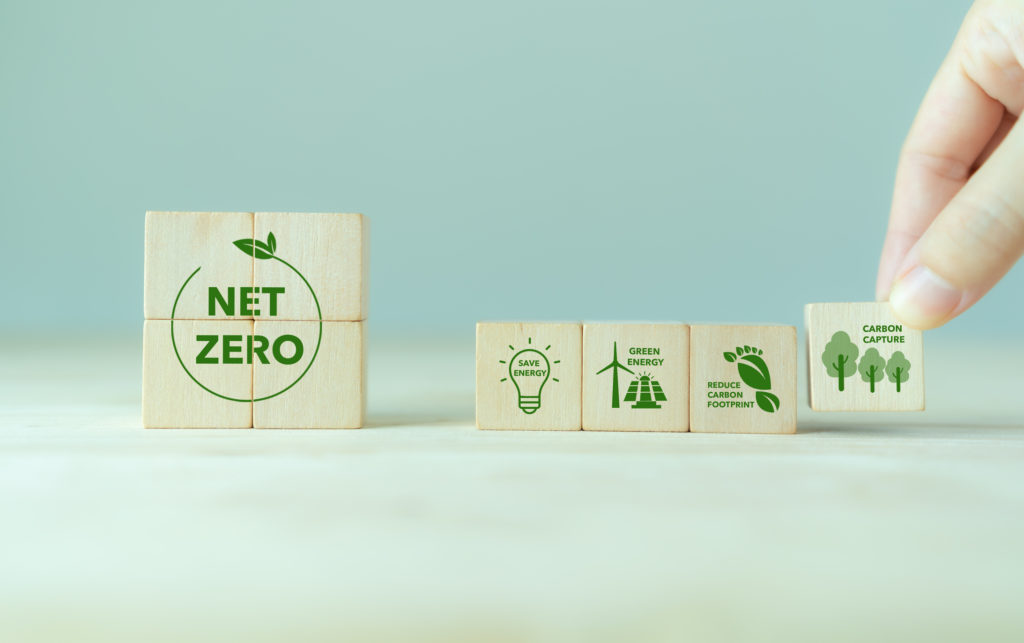
What are steps to a sustainability strategy?
KT: That’s beautiful and I can see how that could apply to a small business. So for someone who’s got a coffee shop, for example, and they’re like “I’m in! I want to do this.” What would you say those first few steps look like to creating a sustainability strategy?
CS: I think those same building blocks sort of apply whatever your size of company. I think you can always ask your suppliers the same questions. Do you take sustainability seriously? Do you have goals around that? And do you have any incentives to encourage people to buy your product to be more sustainable? And how can we use this to operate more efficiently? What do I do when my product is finished?
I think that those same sort of basic questions you can ask whether you’re a coffee shop or whether you’re a large company. When you’re a large company, you might have a lot more specific detail, you might have much more vigorous standards you want to adhere to. But I think it’s the same basic questions to companies. Do you care about sustainability in your goals? How do you design your products? Are there different ways we can buy this in a more sustainable way to help our operations? And then what do we do when we finish with a product?
What are Cisco’s sustainability goals?
KT: So speaking of bigger companies – at Cisco Meraki, where are we right now as far as our sustainability goals? And what is the goal in the next 5 years?
CS: As a company, Cisco has set our goals and then there’s a formal process you go through [with the Science Based Targets initiative (SBTi)] when you review those goals against science-based targets. So Cisco has gone through that and therefore it’s being vigorously looked at by 3rd parties, the approach we’re taking and the goals we’ve set. And we’ve set a goal to reach net zero by 2040.
KT: And just pausing you, what does net zero mean?
CS: Net zero is trying to reduce your overall emissions. And you break it into scope one, scope two, scope 3…that’s probably a little bit more detail than you want to go into. But it’s trying to work out and look at all the emissions you have for a company as a whole.
So when you go through this review, you first have to have a long-term plan of how you’re going to get to net zero state. But then you need to start setting short-term goals as well. So one of the things that [SBTi] looked at was both the long-term goal of 2040, but also these short-term goals in between. And those short-term goals can be things like…we’ve got goals around the use of renewable energy in our buildings and our data centers. We have goals across our supply chain – we’re working with our various different component and manufacturing logistics suppliers. We have goals around that and around greenhouse gas emissions targets in their areas. We’ve got goals around the power efficiency of our products. And of course we talked already about goals around using more recycled plastic.
So all of these form part of your overall strategy. And again – however big your business – if you’re dealing with a supplier, you can ask them “What are your goals to be more sustainable?”
KT: Well, this has all been so enlightening. And I think anyone who didn’t understand the ways that they can improve their business operations, I think they have a much better sense of how to do that from this conversation. So thank you so much for taking the time out of your very busy job to speak with us today.
CS: It’s been an absolute pleasure.
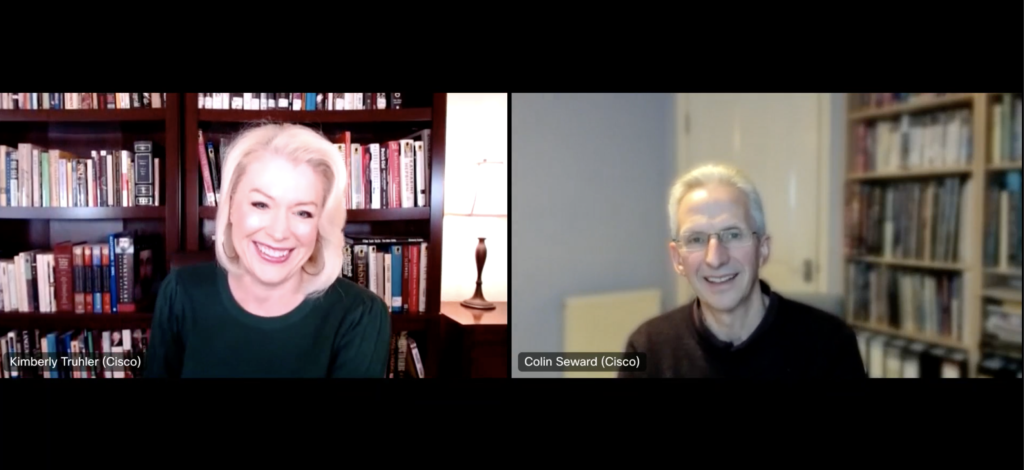
More on sustainability on the Meraki Go blog
- 7 Steps for Creating a Sustainability Strategy
- 5 Ways to Make Your Business More Sustainable
- Why Small Businesses Should Get Green Web Hosting
- Cloud First: 5 Ways the Cloud Can Make Your Business Better
- Making Hybrid Work for Small Businesses
This interview has been edited for length and clarity
SOURCES:
Boston Consulting Group (BCG) "Investing to Win Talent" report (July 2021)
Cisco Purpose Report 2022



